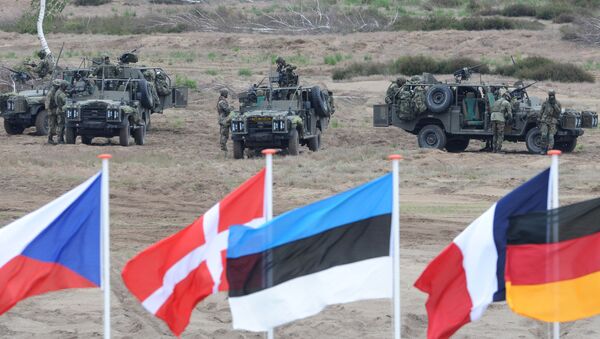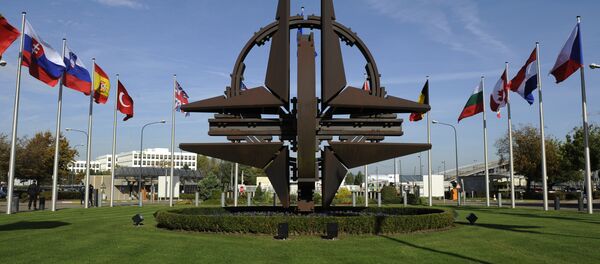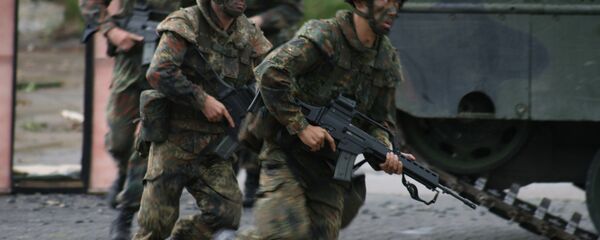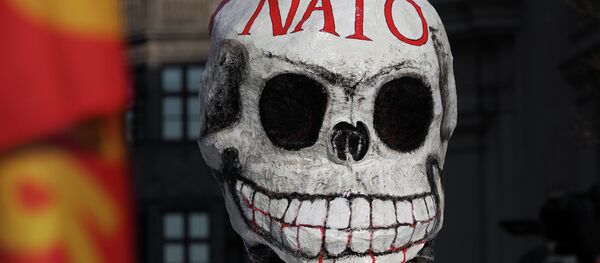While Brexit does not necessarily mean the end of the European bloc, it is obvious that the plan to build a united Europe has stalled, Daniel Goure of the Lexington Institute writes in his recent article.
In this context, NATO is the only alliance to keep Europe united, according to Goure.
"There is only one organization now that unites Europe. It is the North Atlantic Treaty Organization [NATO]," the scholar stresses.
The last remark is especially interesting as NATO was actually founded as a bulwark against the USSR, not Russia.
Good to meet @David_Cameron at #EUCO. The UK remains a leading ally in #NATO. pic.twitter.com/ty1PhMrMN8
— Jens Stoltenberg (@jensstoltenberg) 28 июня 2016 г.
Goure's stance on NATO's special role in Europe was echoed Monday by the Washington Post's editorial board.
"If the European Union is weakening or even in danger of crumbling, to the delight of Vladimir Putin, Mr. Xi [Xi Jinping] and other adversaries, then one antidote is a reinforced transatlantic military partnership that bridges the incipient gap between London and the continent," the media outlet insisted.
In his Wednesday op-ed for Newsweek Jens Stoltenberg, the 13th Secretary General of NATO, underscored that following the Brexit vote NATO and the EU should bolster their ties.
"Historically, there has been a reluctance for the two [the EU and NATO] to work together. But that is changing," Stoltenberg emphasizes.
"Neither NATO nor the EU are entirely equipped with the tools to tackle the unprecedented security challenges we face. But, together, we are a formidable partnership. And that partnership is strengthening day by day and has become even more important in the wake of the UK referendum," the Secretary General claimed.
But is everything rosy in the EU-NATO garden? Does Brussels regard NATO as a "unifying force"?
Back in 2015 a Pew Research Center's survey indicated that European NATO members are reluctant to use force to defend their allies in the event of military conflict with Russia.
"At least half of Germans, French and Italians said their countries should not use military force to defend a NATO ally if attacked by Russia," the fact tank reported.
Interestingly enough, European Commission President Jean-Claude Juncker has repeatedly called for creating the EU's own armed forces.
The "Euro Army" issue sparked a heated debate among analysts and reporters. Some of them dismissed the idea as hot air.
However, EU Foreign Policy Chief Federica Mogherini's new Global Strategy document is likely to add fuel to the fire of the ongoing discussion.
Politico.eu cites extracts from the document that is expected to be handed to EU leaders next week.
"While NATO exists to defend its members — most of which are European — from external attack, Europeans must be better equipped, trained and organized to contribute decisively to such collective efforts, as well as to act autonomously if and when necessary," the document says.
Furthermore, the EU should "systematically encourage defense cooperation and strive to create a solid European defense industry, which is critical for Europe's autonomy of decision and action."
According to the media outlet, the issue of the creation of a Euro Army is off the table. However, it seems that the EU is seeking a way to conduct own security policy, independent from NATO and Washington.
Meanwhile, ahead of NATO's Warsaw summit in early July, European social activists have launched a campaign against the Alliance, urging EU member states to leave the obsolete bloc.
In light of this the question arises whether NATO will really become an "antidote" to Brexit and a glue to hold the European Union together.






